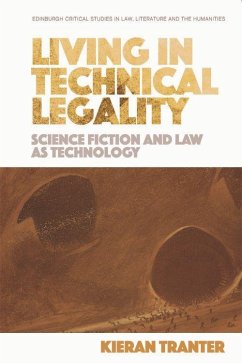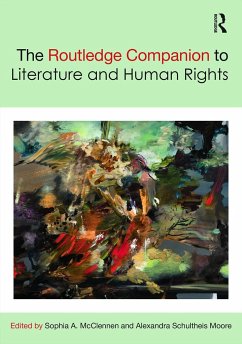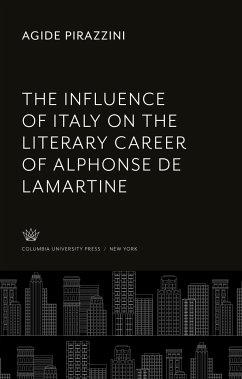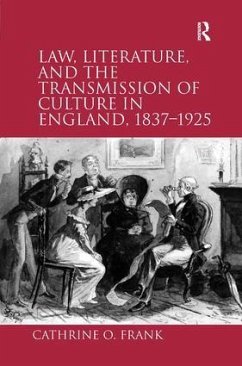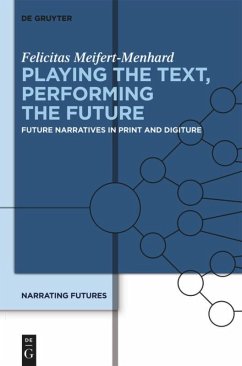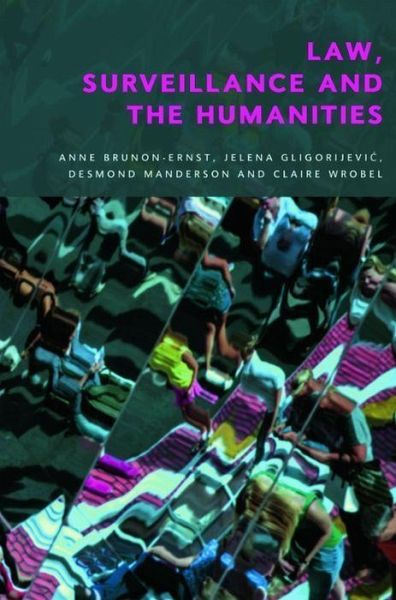
Law, Surveillance and the Humanities
Versandkostenfrei!
Versandfertig in über 4 Wochen
117,99 €
inkl. MwSt.
Weitere Ausgaben:

PAYBACK Punkte
59 °P sammeln!
What do Margaret Atwood or Gulliver's Travels have to do with Facebook, Tik Tok or COVID-19 and issues of law and surveillance? The growing sophistication of surveillance practices has given rise to concerns and discussions in the public sphere, but has also provided a popular theme in literature, film and the arts. Bringing together contributors across literary studies, law, philosophy, sociology and politics, this book examines the use, evolution, legitimacy and implications of surveillance. Drawing on a range of resources, chapters explore key issues such as the use and legitimacy of survei...
What do Margaret Atwood or Gulliver's Travels have to do with Facebook, Tik Tok or COVID-19 and issues of law and surveillance? The growing sophistication of surveillance practices has given rise to concerns and discussions in the public sphere, but has also provided a popular theme in literature, film and the arts. Bringing together contributors across literary studies, law, philosophy, sociology and politics, this book examines the use, evolution, legitimacy and implications of surveillance. Drawing on a range of resources, chapters explore key issues such as the use and legitimacy of surveillance to address a global health crisis, the role of surveillance in the experience of indigenous peoples in post-colonial societies, how surveillance interacts with gender race, ethnicity and social class, and the interaction between technology, surveillance and changing attitudes to expression. It shows how literature contributes innovative ways of thinking about the challenges posed by surveillance, how philosophy and sociology can help to correct biases and law and politics can offer new approaches to the legitimacy, use and implications of surveillance. Key features and benefits - Covers a range of topical issues ranging from the security state and the power of tech industries, to COVID-19 and the role of surveillance in the experience of indigenous peoples in post-colonial societies - Compares legal frameworks and offers an overview of surveillance in France, the UK, US, Canada and Australia - Brings together contributors across literary studies, law, philosophy, sociology, and politics - Draws on a range of literary texts, such as Jonathan Raban's Surveillance, Margaret Atwood's Bodily Harm and The Testaments and Jonathan Swift's Gulliver's Travels - Examines the key concepts involved in surveillance studies, including surveillance itself, privacy, identity, trust, consent, agency and security Anne Brunon Ernst is Professor in Legal English at Paris-Panthéon-Assas University Jelena Gligorijevic is Senior Lecturer in the College on Law at Australian National University Desmond Manderson is Professor of Law and Director of the Centre for Law, Arts and the Humanities at Australian National University Claire Wrobel




